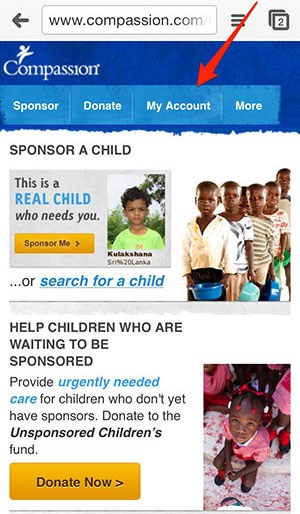
How to Write Letters to Teenagers
Developing a meaningful long-distance relationship through letters with 5- to 10-year-olds isn’t very complicated at first. Tell them you love them, tell them God loves them, tell them you are proud of them. Send them stickers, coloring pages, and photographs of your family. Repeat often! But as any parent knows, as those little ones develop into teenagers and young adults, your communication style needs to change.

Letter Writing: Lost In Translation
When we wrote the blog post “30 Adorable Things Kids Say,” it was no surprise we saw a great response from you on the blog and Facebook about the joy contained in the letters you receive from your little family member in their far away land. Even through separation of distance and culture, you are developing a beautiful and genuine relationship. Your sponsored child’s letters contain more than just words. So to make sure the cute things they say never get lost in translation, here is our latest infographic to use as a fun and handy translation guide!

3 Easy Kids Crafts For Letters
As a mom and a Compassion sponsor, I have tried to involve my children as much as possible in our sponsorship journey. My children helped choose our very first sponsored child almost five years ago. We have spent time learning about the countries where Compassion is working. And we have written a ton of letters! There are so many fun art projects that you and your kids can do together to send to your sponsored children.

Second Friday Writing Club: Playtime
Children everywhere have a strong capacity to be creative because God created us that way. And research shows that when the brain is growing, play is needed to make connections that contribute to memory, learning, emotional regulation and social intelligence. At the Compassion centers, sponsored children are given the opportunity to spend time playing and learning to play with others in safe and clean environments.
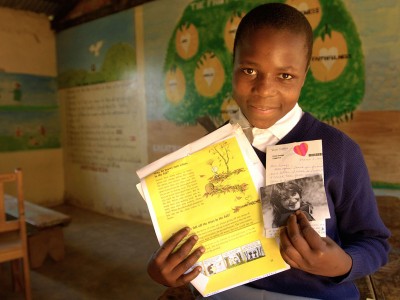
4 Tips for Writing Your First Letter
You attended a concert a couple of weeks ago or maybe someone spoke at your church and your heart was moved to sponsor a child through Compassion. Yea! Congratulations! And then, just yesterday, you received a welcome packet for this new member of your family. As you look through it, you read the section titled “Write to Him” and you think, Wow! I can’t even remember the last time I wrote a letter, let alone sent a card to someone! What in the world am I supposed to write to this child?

International Day of the Girl Child
United Nations Resolution 66/170 states that, “..empowerment of and investment in girls are…key in breaking the cycle of discrimination and violence and in promoting and protecting the full and effective enjoyment of their human rights” This is the resolution that sets aside October 11th of each year as the International Day of the Girl Child.
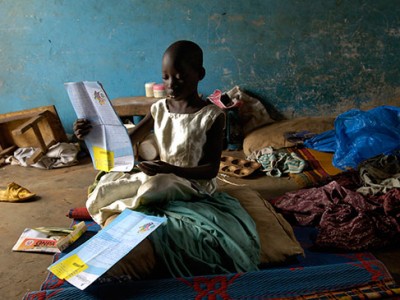
What to Expect from the Letters From the Child You Sponsor
Working in the Compassion USA Contact Center, I get the opportunity to help answer the questions of Compassion sponsors over the phone, via email, or online about the children they sponsor. And often there are questions about the letters sponsors receive from them.
Building a relationship through letter writing is one of the most important things you can do to offer hope to the child you sponsor. So here are a few of the questions I get from time to time. Hopefully, they’ll help you know a little about what to expect from the letters you receive while you are building that fruitful relationship.
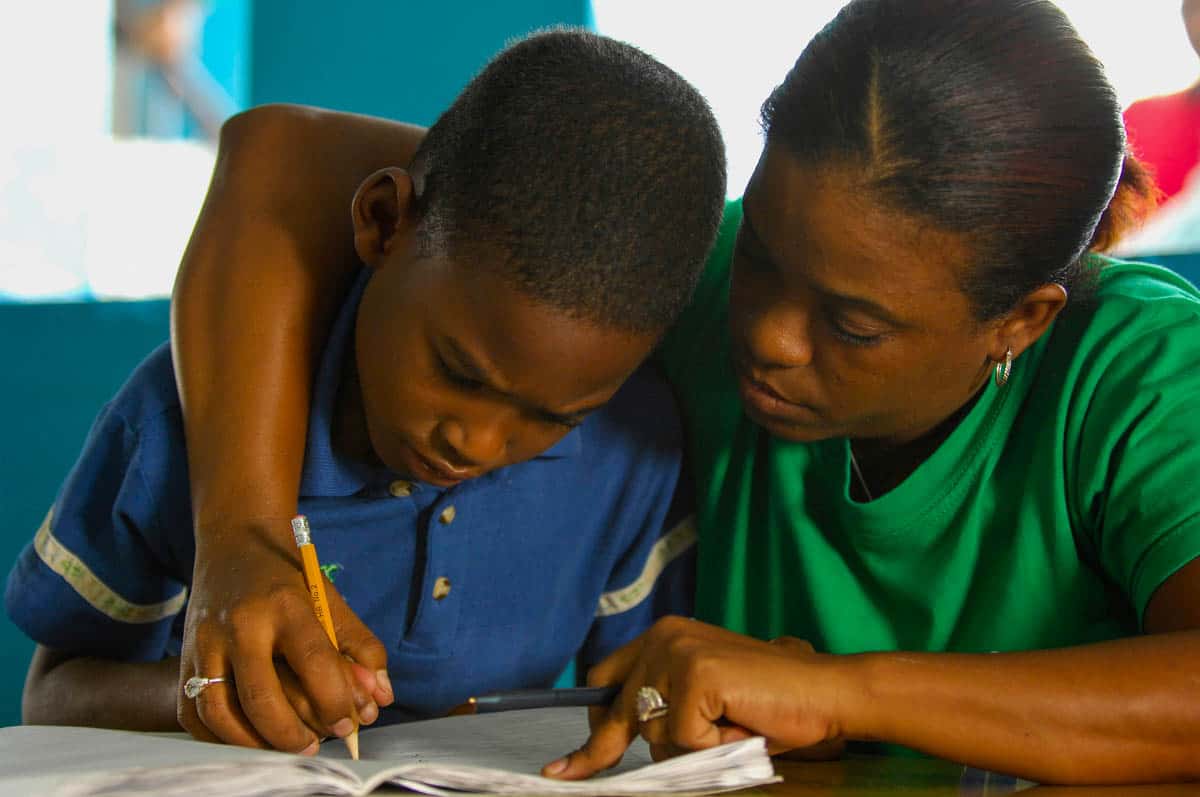
Why can’t he read or write yet?
A few weeks ago, I talked with Roberta* who sponsors a 10-year-old boy in Burkina Faso. Roberta was confused about why the boy she sponsored was not yet able to write letters on his own and why he had to have a tutor dictate each letter for him. She felt that he should be able to write his own letters by now and thought there must be something amiss.
I explained to Roberta that, in some cases, children are not able to start school until they are registered in the Compassion program, which could be as late as age 9. School systems may also look very different there. We think of 9-year-old children in the U.S. as having at least three years of schooling and reading and writing skills. But some of the children in Compassion’s programs are just learning literacy at age 9, and many parents are also illiterate, giving their children few role models.
Sometimes we simply do not realize the incredible challenges that the children we sponsor in impoverished communities face as they seek to escape from extreme poverty. This might cause us to expect things from them that they really are not able to give to us.
Why hasn’t he answered my questions?
In many cases, when a child receives a letter from his sponsor, he takes it home to show his family, and then saves it in a “special place” because he is SO proud to have a letter! If this is the case, you might wonder why Jose has not answered you when you asked him what his favorite color was.
Letters are often written as part of a class exercise so staff can provide adequate help and attention to individual children as they write their letters. Several weeks after Jose received your letter, the staff at the student center would have scheduled a time for all the children to write letters to their sponsors. Jose may not have had the last letter with him and may not have remembered the questions you asked.
This is why if you underline or highlight your questions, the staff will copy down these questions and make sure that your children are able to answer them.
Most children in from under-resourced communities cannot imagine why anyone would be interested in how tall they are or how much they weigh. Many cultures are much more private about that type of information and children might not think that the sponsor really wants to know such information. Also, it may be considered vain to be discussing personal things about themselves.
Why isn’t there more depth in her letters?
I don’t know about you, but I can remember that as a child in school, when my teachers asked me to write thank-you letters to adults, my letters were a bit shaky. Actually, my letters probably sounded rather distant and formal. Part of that was due to the fact that I had absolutely no idea what to say to these adults, and how to say thank you for whatever they had done for me and my class at school. As I had more practice in writing letters, I know they got better and sounded less formal, forced and aloof.
Along the same lines, cultural differences may cause the letters from the child you sponsor to seem excessively pious or religious. For example, in Uganda, it is common to begin a letter with “Praise God!”
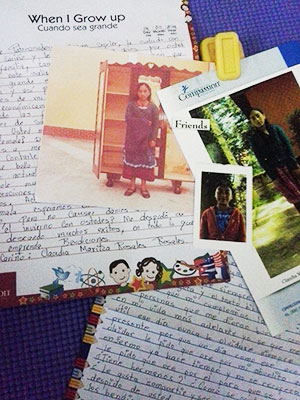 In many cases, a child’s personality will come through in his or her letters. If they are more outgoing, they might be little chatterboxes in their letters. If they are shy, maybe they will have more trouble sharing personal information than other children. In the same way, some children are more comfortable discussing their faith than others.
In many cases, a child’s personality will come through in his or her letters. If they are more outgoing, they might be little chatterboxes in their letters. If they are shy, maybe they will have more trouble sharing personal information than other children. In the same way, some children are more comfortable discussing their faith than others.
About four years ago, I started sponsoring a beautiful young lady named Claudia.
Little did I know, before I had sponsored Claudia, she had been sponsored by someone else. Compassion’s sponsorship program is a one-to-one sponsorship program, but sometimes sponsors come and go over the course of a child going through our program. So sweet Claudia had already been through the experience of being sponsored for four years by someone else with whom she wrote letters back and forth.
Then one day, for one reason or another, the sponsor stopped sponsoring Claudia. No wonder our relationship started off a bit distantly! Was she afraid to connect too much with me only to see me go again? I’m not sure. All I know is that it took a few years of sending faithful and loving letters of encouragement before Claudia started to open up to me a little in her letters.
Why doesn’t she tell me more about the Compassion program?
A while back, I had a tough conversation with another sponsor named Jerry.* He was frustrated with something in the letters he was receiving, or rather what was lacking. Over the course of our conversation, it became clear that Jerry had expected the letters to prove that his money was getting to where it was supposed to be, and that Compassion was operating above board. For whatever reason, the letters from the child he sponsored were not communicating that to him, and I would argue that they never could.
The child or teen you sponsor will not always be able to communicate what your sponsorship has meant to him or her and that your money is going a long way to lift he or she out of poverty. They may not have a high enough vocabulary yet to be able to communicate the significant changes they are experiencing. They may not even realize that they receive “support,” because the benefits of the program are given through their local church in the form of goods and services and not cash.
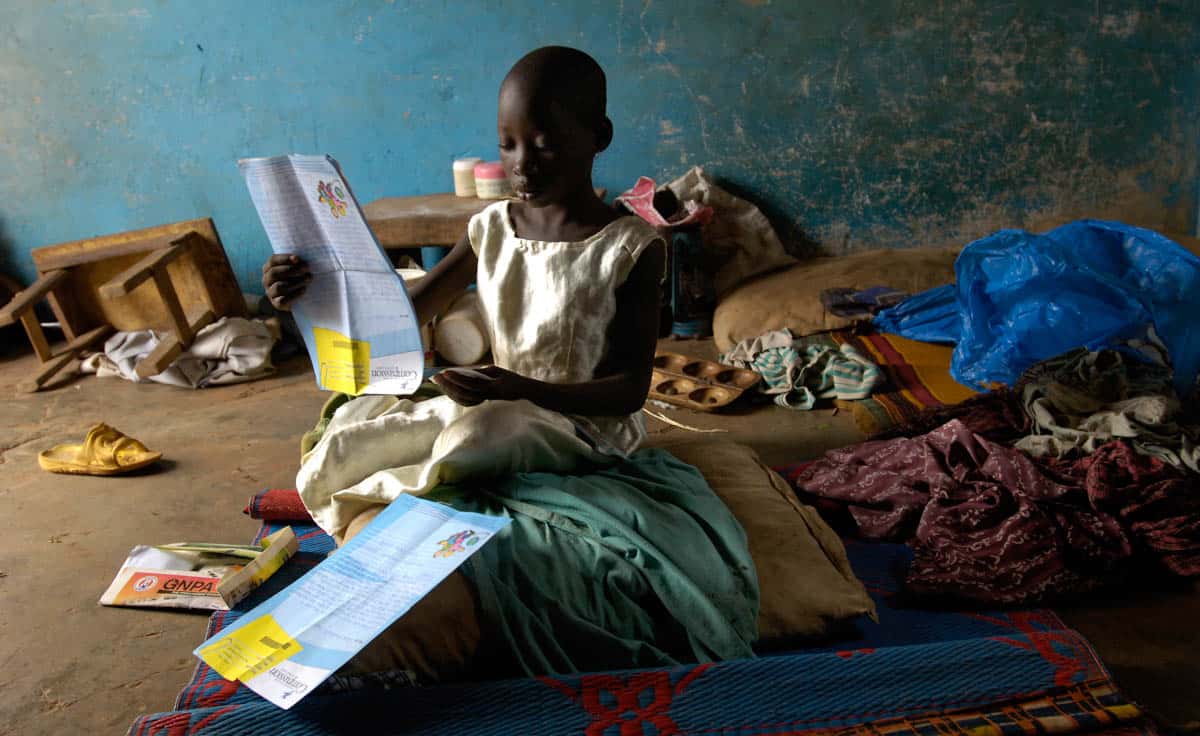
What do my letters mean?
My prayer is that you would see letter writing as a mentoring relationship. Your consistent letters of encouragement will communicate to your child, “I care about you and I want to be a part of your life.” There is power in that.
I can tell you that I have been blessed by God through my decision to be a sponsor; completely separate from anything that Claudia herself could ever give to me. Sure, it has been an absolute joy hearing her sweet jokes in her letters, her wisdom expressed, and watching her grow. I have had the amazing honor of being a part of Claudia’s growing years by loving and encouraging her through the ages of 12 to 16. She’s changed so much, and I love that I get to be a part of that!
This has all been an added blessing that could not be coaxed out of her. It is the same way that Christ gave to me. He did not love me because I would love Him back. No, while I was still lost in my sin, Christ died for me. I love and give to Claudia out of this same grace that I have experienced – without an expectation of what she will give back to me. What I do get back is an extra grace, an unexpected blessing.
*Name changed for privacy
Have more questions about the letter-writing process? Leave a comment below.

Not Too Soon for Christmas
What does a Christmas celebration look like for our sponsored children? Do they have special Christmas traditions with their families? Do they decorate their homes with Christmas decorations? Do they attend special Christmas services at their churches? Because it can take months to get a letter to your sponsored child, it’s not too soon to write about Christmas now!
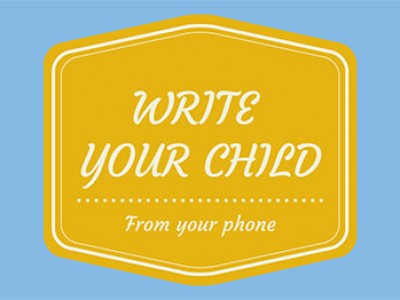
How to Write Your Sponsored Child from Your Phone
Update: Download our app from iTunes or Google Play to make writing a letter from your smartphone even easier!
You’ve been snapping a bucket load of pictures of your kids as they head back to school. Standing on your front porch. In front of the bus. By the flagpole. They’re beginning their new yearly adventure and it’s a tradition to chronicle it.
It’s also a great opportunity to share your world with the child you sponsor. Right after you take that adorable photo of your little one, you can send it off in a letter to your child across the world … right from your phone! It’s easy!
Here’s how to write your child from your phone:
1. Open a web browser on your phone and go to www.compassion.com. Tap on “My Account.”

Letter Writing Inspiration
As Compassion sponsors, we have the opportunity to pour love into the lives of the children we sponsor with encouraging and uplifting words in every letter we mail to them. The words in our letters can make a difference. Here’s some inspiration for your letter writing so you can be an inspiration to them!

30 Adorable Things Kids Say in Their Letters
Every once in a while, the things the kids we sponsor have written to us make us pause, laugh, and thank God that we get to be a part of their lives. Here’s a collection of the most adorable things the kids have written to us.

Share Your Letter Writing Ideas: #compassionletter
Over the past year, on our Second Friday Writing Club board on Pinterest, many letter writing ideas have been pinned on how to make wonderful paper items for our sponsored children that can be mailed. You can join in the creativity by pinning and sharing your fun and inspirational ideas with #compassionletter!

